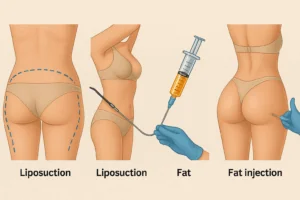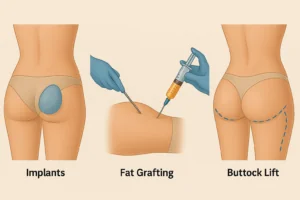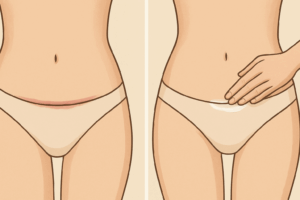Kardiyoloji muayenesi nasıl yapılır? Kalp sağlığınız için kardiyoloji check-up paketlerini ve fiyatlarını keşfedebilirsiniz. Makalemizin detaylarını şimdi okuyun ve keşfedin.
Heart health is one of the most important indicators of our overall health. Cardiovascular diseases are among the most common causes of death worldwide. Therefore, it is vital that our heart is checked regularly and potential problems are detected early. In this article, we will take a detailed look at what a cardiology check-up is, why it is important and how it is done.
What is a Cardiology Check-Up?
A cardiology check-up is a comprehensive examination and testing process to assess the overall health of your cardiovascular system. This process allows for early diagnosis of heart diseases, identification of risk factors and taking necessary precautions.
Why Should You Have a Cardiology Check-Up?
- Early Diagnosis: Many heart diseases may not show obvious symptoms in the early stages. Regular check-ups help to detect these "silent" diseases early.
- Risk Assessment: Tests performed during a check-up can help determine your risk of heart disease.
- Preventive Measures: Early detection and risk assessment allows your doctor to take the necessary preventive measures.
- Quality of Life: Regular check-ups protect your heart health and improve your quality of life.
- Long-Term Health: Maintaining your cardiovascular health positively affects your overall health in the long term.
When Should You Have a Cardiology Check-Up?
In general, a cardiology check-up is recommended in the following cases
- Annual check-ups for men over 40 and women over 50
- If you have a family history of heart disease
- If you have high blood pressure, diabetes or cholesterol problems
- If you smoke
- If you are overweight
- If you have a stressful lifestyle
- If you do not exercise regularly
However, even at any age and without risk factors, it can be useful to have a cardiology examination as part of your general health check-up.
What is done in Cardiology Check-Up?
A cardiology check-up usually includes the following steps:
1. Medical History and Physical Examination
Your doctor will first ask about your and your family's medical history. Then he or she will perform a physical examination. This examination includes the following:
- Blood pressure measurement
- Pulse check
- Height and weight measurement
- Body mass index (BMI) calculation
- Examination of the neck, chest and abdomen
2. Laboratory Tests
Blood tests provide important information about your heart health. These tests usually include
- Complete blood count
- Lipid profile (cholesterol and triglyceride levels)
- Fasting blood glucose
- HbA1c (long-term blood glucose control)
- Liver and kidney function tests
- Thyroid function tests
- C-reactive protein (CRP) - an indicator of inflammation
3. Electrocardiogram (ECG)
An ECG is a simple and painless test that measures the electrical activity of your heart. This test helps to detect heart rhythm disorders, the condition of your heart muscle and possible heart damage.
4. Echocardiography
Echocardiography is ultrasound imaging of the heart. This test evaluates the structure, function and blood flow of the heart. It provides important information such as the condition of the heart valves, the size of the heart chambers and the thickness of the heart muscle.
5. Stress Test
A stress test is usually done on a treadmill or bicycle ergometer. During this test, how your heart works when you exercise is assessed. ECG and blood pressure are continuously monitored. This test can reveal signs of coronary artery disease.
6. Holter Monitoring
A Holter monitor is a portable device that records your heart rhythm for 24 hours. This test shows how your heart works during your daily activities and helps to detect intermittent arrhythmias.
7. Carotid Doppler ultrasonography
This test assesses the condition of your neck arteries (carotid arteries). It helps to detect signs of atherosclerosis (arteriosclerosis) and possible blockages.
8. Coronary CT Angiography
This imaging method provides a detailed image of the coronary arteries. It can show vessel blockages and plaque build-up. It is usually recommended in high-risk patients or when the results of other tests are uncertain.
What Happens After a Cardiology Check-Up?
After your check-up results have been evaluated, your doctor will provide you with a report. This report includes an interpretation of your test results, your current heart health status and future risk factors. Depending on the results, your doctor may recommend the following:
- Lifestyle Changes: Suggestions such as changing your eating habits, regular exercise, quitting smoking.
- Medication Therapy: If deemed necessary, medication may be started to lower blood pressure, control cholesterol or manage other risk factors.
- Regular Follow-up: Follow-up examinations and tests can be scheduled at regular intervals.
- Further Investigations: In some cases, further tests or specialist consultation may be required.
- Emergency Response: Rarely, if a serious problem is detected during a check-up, urgent medical attention may be required.
Preparing for a Cardiology Check-Up
To get the best results from your check-up, you can follow these steps:
- Arrive hungry: Blood tests usually require an 8-12 hour fast.
- List Your Medicines: Make a list of all the medicines you take.
- Dress Comfortably Wear comfortable clothes and sneakers, especially for the stress test.
- Sleep and Stress: Sleep well and try to stay calm before the test.
- Medical History: Find out about your family's medical history.
- Prepare your questions: Write down the questions you want to ask your doctor in advance.
Conclusion
A cardiology check-up is a very important tool to protect your heart health and detect potential problems early. Regular check-ups can positively impact not only your heart health but also your overall quality of life.
Remember that heart health is not only protected by check-ups. Daily habits such as a healthy diet, regular exercise, avoiding smoking and managing stress are just as important as check-ups.
The health of your heart is in your hands. Take care of your heart with regular check-ups and a healthy lifestyle. Because a healthy heart is the foundation of a healthy life.

























